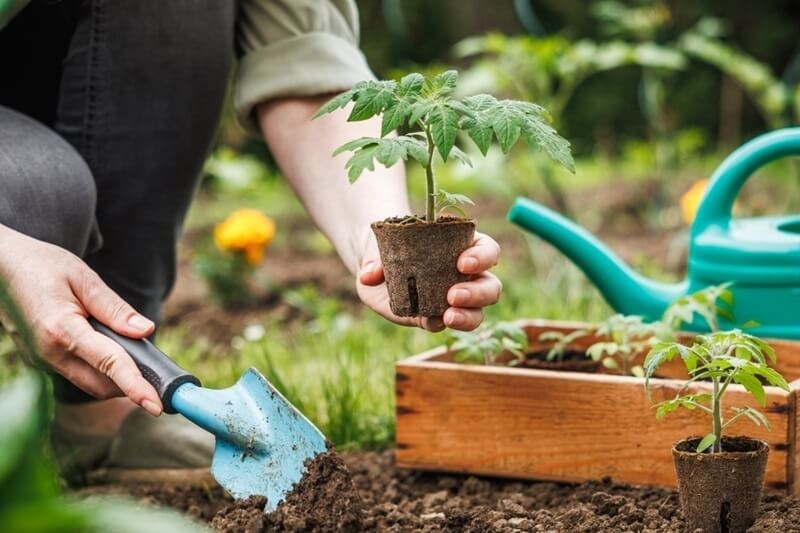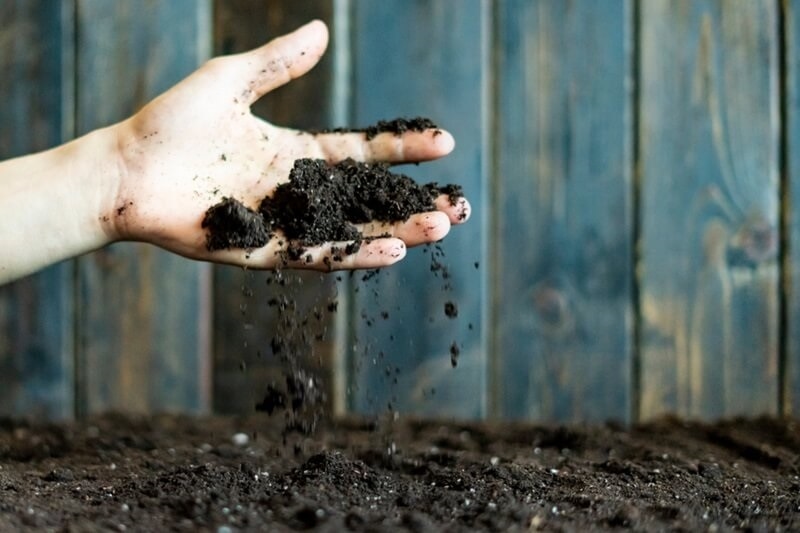
A garden full of beauty doesn’t have to be dependent on the use of chemicals or artificial products. Anybody can produce a rich, healthy garden that is fully free from chemicals with a little awareness and a few simple habits. Organic gardening is not solely about avoiding synthetic fertilizers; it is also a means of establishing a relationship with the natural world, conserving the environment, and generating plants that are safe for your family, pets, and local wildlife.
This blog will examine the fundamental steps that can help a beginner start organic gardening effectively. You will learn how to enrich the soil, attract the right bugs, clean your garden tools, and implement green practices that will keep your garden well-fed year after year.
Essentially, organic gardening is about harmony with nature rather than fighting against it. Organic gardeners resort to using compost and natural minerals and introducing beneficial insects to the garden to maintain it healthy, instead of chemicals.
One of the main goals is nourishing the earth to the level that it will sustain the plants with no need for external feeding. A good kind of earth leads to healthy plants, and strong plants could fight off pests and diseases more efficiently. The basic practice at the core of organic gardening includes refraining from using synthetic chemicals, using natural fertilizers, propagating the diversity of life, and saving water. Focusing on soil health means you have everything else in your hands -plants grow stronger, yield more, and need less care over time.

Soil is the base of any organic gardening system that will succeed. If the soil is unhealthy, even the most resilient plants and seeds will have a hard time. Fortunately, improving soil does not require the use of chemicals; it just calls for organic matter and hours of patient work. Putting in kitchen scraps, dry leaves, and regular mulching can help to change the structure of the earth. Crop rotation can also help replenish the nutrients in the soil and can encourage balanced growth.
The next step is to get the best organic fertilizer options for home gardens that will work for your garden in the backyard. Among the best natural materials that help in the gradual release of nutrients into the earth are compost, worm castings, and bone meal. Through these, plants absorb nutrients bit by bit over a long period. Moreover, they also improve the earth texture and microbial activity that is essential for root development and long-term fertility.
Saving water is one of the easiest eco-friendly gardening practices that comes with good returns for both plants and the earth. Watering cows in the early morning is effective as it reduces evaporation and roots have time to absorb the water efficiently. Similarly, water collected in barrels from rain can be used for irrigation. and this is another method of water conservation.
You can also be more environmentally friendly by reusing things. For instance, old jars, buckets, broken pots can be turned into planters. With the use of native plants, it is possible to enjoy a drought-resistant and low-maintenance garden since these plants are already adapted to the climate. These small things add up to a sustainable garden that is also easier to care for.
One of the things that no gardener ever wishes to encounter is pests, but the use of very strong chemicals is not a solution either, as they usually cause more harm than good. Luckily, there are a lot of natural pest control tips that can be very efficient without harming your plants and soil.
Some of the natural ways that are highly effective in controlling pests are mentioned here:
One of the most clever ways in organic gardening is to combine plants that provide benefits to each other in a natural way. Companion plants for organic gardens not only keep away the pests, but also enrich the soil and enhance the nutritional value of the crops.
Basil is a perfect example because it drives away pests while enhancing the taste of tomatoes. Carrots and onions are good neighbors because the onions drive the carrot flies away. Marigolds that attract with their bright looks are good friends as they keep nematodes and aphids away. These plant pairings allow you to keep plants in excellent health status without using chemical pesticides.
Disinfecting tools is necessary to stop the transmission of diseases and ensure the welfare of your garden. However, most cleaners found in stores are full of chemicals that can cause direct harm to plants and the soil. Changing to safe cleaners for garden tools is a simple way to declutter and lessen the toxicity in your gardening routine.
DIY natural cleaning products are easier than you think. Vinegar diluted in water works perfectly for disinfection and rust removal. Baking soda paste is effective in removing dirt and sap, while lemon juice can penetrate the discoloration. After washing, dry your instruments well and apply a thin layer of natural oil such as linseed or coconut to avoid rust formation. The use of safe cleaners for garden tools keeps your garden free of toxins while allowing your equipment to be used for a longer period of time.
Recycling is an important part of eco-friendly gardening practices. You can reuse everyday items to make your garden more creative. Old jars can be used to protect young plants from the environment, and newspapers or cardboard can be used as mulch to keep the weeds away. The water you use to wash your vegetables can also be used to water the plants that are not for eating.
Doing these little things reduces your garbage and saves you money while at the same time you are being sustainable. If you use your creative mind, you will find that almost everything in your house can be used as something new in your organic garden.
A real organic garden area supports all kinds of life, whether bees, butterflies, birds, or frogs. By welcoming wildlife, you create a perfect ecosystem that naturally takes care of pollination and pest control. What you can do is plant native flowers for pollinators, install a birdbath, and not use chemical pesticides.
Letting a small area of grass or wildflowers grow naturally also provides shelter for insects and small animals. Eventually, you will have fewer pest problems and a more colorful, self-sustaining garden.
Opting for organic gardening is one of the most gratifying choices that benefits you and the world around you. By utilizing organic pest control suggestions, selecting an organic fertilizer for your garden and gardening in an environmentally-conscious way, you create a clean, sustainable garden.
Start small—compost your kitchen scraps, make use of items you would have gotten rid of, or plant pollinator-friendly herbs or flowers—before you know it, you will have a beautiful garden that integrates quite nicely with the ecosystem.
This content was created by AI